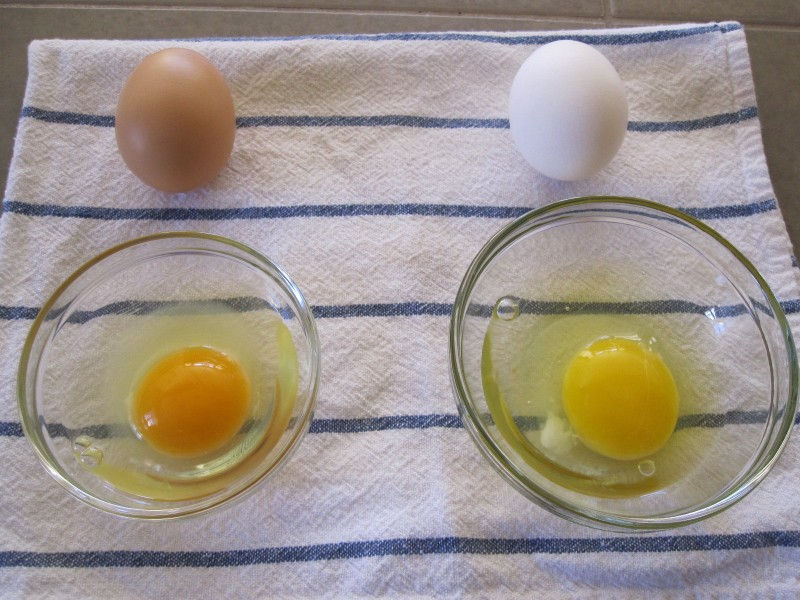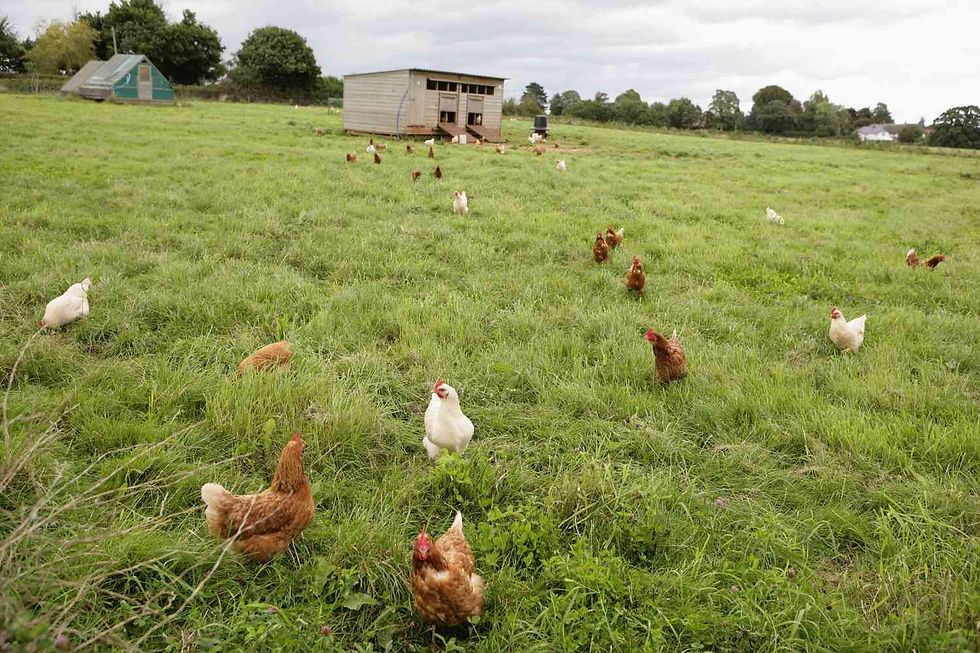10 Key Differences Between Store-Bought Eggs and Farm-Fresh Eggs
- rusticrootsheritag
- Jan 15, 2025
- 3 min read


Eggs are a breakfast staple, a baking essential, and a protein-packed snack. But not all eggs are created equal. When you compare store-bought eggs to farm-fresh eggs, the differences are striking. From taste to nutritional value, here are 10 reasons to consider supporting local farmers or even raising a few chickens yourself.
1. Nutritional Value
Farm-fresh eggs are often more nutrient-dense than store-bought eggs. Studies show that eggs from free-range hens tend to have:
Higher levels of vitamins A, D, and E.
More omega-3 fatty acids.
Less cholesterol and saturated fat.
Why? Hens raised on a farm often have access to a more varied, natural diet, including grass, bugs, and other organic matter.

2. Yolk Color
One of the most noticeable differences is the yolk color. Farm-fresh eggs often have vibrant orange yolks, a sign of a nutrient-rich diet. Store-bought eggs, especially those from caged hens, tend to have pale yellow yolks. This difference stems from the chickens' diet—more natural pigments result in richer yolks.
3. Freshness
Farm-fresh eggs are usually collected and sold within days, ensuring optimal freshness. Store-bought eggs, on the other hand, can be weeks old by the time they reach your kitchen. This freshness affects not only the flavor but also the egg's structure, making farm-fresh eggs better for baking.
4. Flavor
Taste is where farm-fresh eggs shine. Thanks to the hens' diverse diets and better living conditions, these eggs have a richer, more robust flavor. Store-bought eggs can taste bland or watery in comparison.
5. Appearance
Farm-fresh eggs often come in a variety of shell colors, including brown, blue, and green, depending on the chicken breed. Store-bought eggs are usually uniform white or brown, chosen for commercial consistency.

6. Cage-Free vs. Free-Range
Cage-Free: These hens are not confined to cages but may still live in crowded indoor spaces.
Free-Range: These hens have outdoor access, though the quality and amount of outdoor time can vary.
Farm-fresh eggs typically come from genuinely free-range chickens that enjoy a healthier, more natural lifestyle.

7. Eggshell Thickness
The shells of farm-fresh eggs tend to be thicker and harder, making them less likely to crack during handling. This is due to the hens' healthier diet, which often includes more calcium.
8. Environmental Impact
Buying farm-fresh eggs or raising your own chickens reduces the environmental footprint compared to supporting large-scale egg production. Local farms often use sustainable practices and fewer resources.
9. Ethical Considerations
Many farm-fresh eggs come from hens raised humanely, with plenty of space to roam, peck, and forage. In contrast, store-bought eggs often come from hens in overcrowded or stressful environments, even under "cage-free" labels.
10. Cost vs. Value
Store-bought eggs are often cheaper, but you get what you pay for. Farm-fresh eggs provide better flavor, higher nutritional value, and peace of mind about animal welfare, making them worth the investment.
Why Choose Farm-Fresh Eggs?
Supporting local farms helps keep your community thriving while ensuring you get the highest quality eggs. Alternatively, raising your own chickens is a rewarding way to enjoy fresh eggs daily. Chickens are easy to care for, fun to watch, and can even help reduce food waste by eating table scraps.
How to Start Your Farm-Fresh Egg Journey
Buy Local: Visit farmers' markets or connect with local egg producers.
Raise Your Own Chickens: A small backyard flock can provide a steady supply of fresh eggs. Research your local regulations and start small with a handful of hens.
Switching to farm-fresh eggs is a simple change with big benefits. Whether you're savoring the rich flavor, admiring the bright orange yolks, or knowing your eggs came from happy hens, you'll never want to go back to store-bought again. Support local farmers—or become one yourself—and enjoy the difference today!




Comments